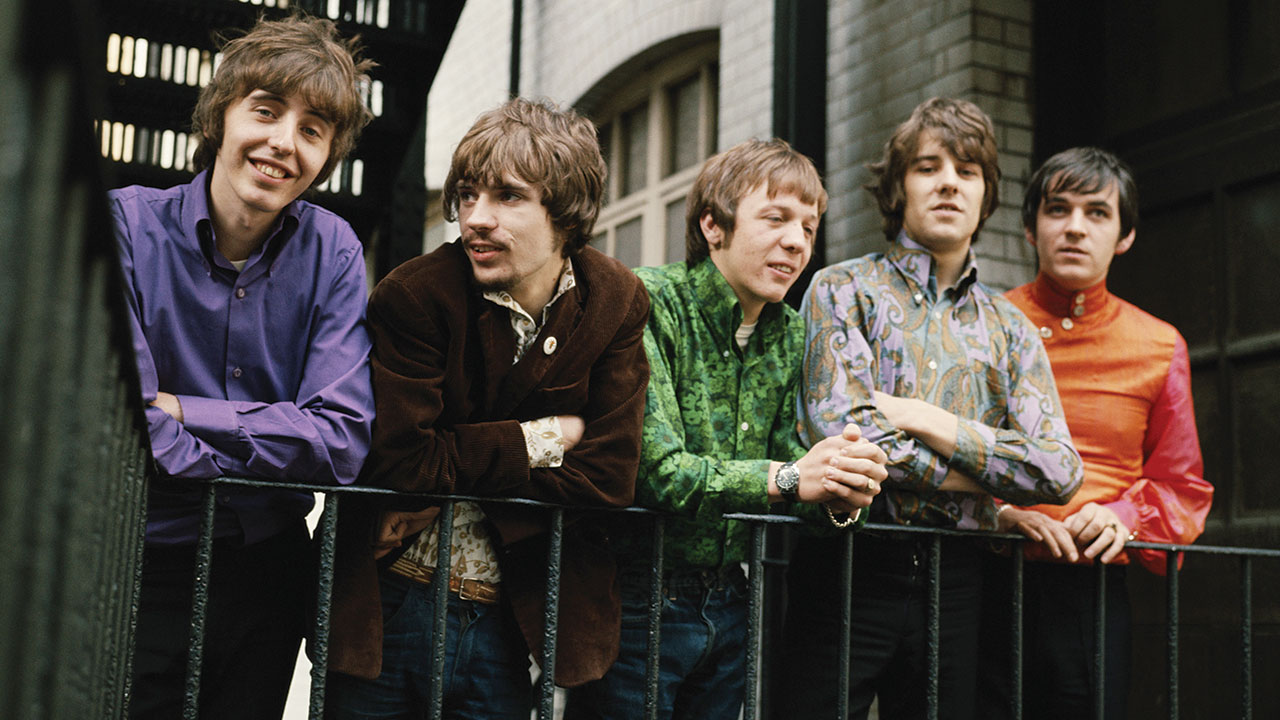In 2020 Prog looked back at the convoluted history of Procol Harum’s signature track and debut A Whiter Shade Of Pale, which changed the musical world when it was released in 1967.
It’s a song with almost incomprehensible lyrics, it’s been the subject of drawn-out legal proceedings, and it’s the most played record by British broadcasters over the past six decades.
A Whiter Shade Of Pale, the debut release from Procol Harum, not only topped the UK charts for six weeks, but also made it to Number 5 in America. It all began with lyricist Keith Reid, as singer/pianist Gary Brooker told Prog.
“Keith had written the words and posted them to me. I’d been working on a musical idea, which until then had been purely instrumental, when I opened the post and A Whiter Shade Of Pale was on the top of other lyrics.
“I was immediately taken with the immense length of the original four verses with a chorus on each, and the narrative form it took, with its mysterious characters and goings-on.”
Brooker’s melodic idea had been inspired by classical composer Johann Sebastian Bach. “Throughout 1966 I had followed with interest the work of the Jacques Loussier Trio and the Swingle Singers, who had made an art of adapting Bach pieces,” he said. “Air On A G String was the starting point, but the rest was invention, with constant reference to Bach-like breaks and atmosphere.”
Released in May 1967, it debuted at Number 11 in the UK, reaching the top a week later. But despite the instant success, Brooker wasn’t about to get carried away by pop stardom.
“When it was at Number 1, a Rolls Royce appeared at my flat to pick me up for Top Of The Pops. I asked who had booked it, the driver said, ‘Your manager.’ We sacked him and I took the bus!”
The single was originally credited to Brooker and Reid. In 2004 organist Matthew Fisher – a member from 1967 to 1969 then again from 1991 to 2004 – launched a lawsuit, claiming he’d co-written the music with Brooker. He won his case two years later, but wasn’t happy with the ruling that he was entitled to 40 percent of musical royalties, and no payment for sales before 2005.
Brooker appealed, and another case began in 2007. A year later the Court of Appeal decided that Fisher should retain a credit but receive no royalties due to his 38-year delay in bringing the case. Fisher appealed, and another trial began in 2008 before the UK’s Law Lords – the first time a song copyright case had been heard in the House of Lords. That resulted in another win for Fisher, who regained access to future royalties. Brooker later said the drawn-out legal action had cost him over £1,000,000.
It came along at just the right moment, and meant so much to so many people at a formative time
Over the years A Whiter Shade Of Pale has been released as a cover version by at least 1,000 different artists. It became so recognisable that Procol Harum retired it from their set for a number of years. It re-entered single charts twice in 1972, reaching Number 1 in the Netherlands and Number 13 in the UK. The song was inducted into the Grammy Hall Of Fame in 1998 and into the Rock & Roll Hall Of Fame in 2018. [Following Brooker’s death in 2022 it re-entered the UK charts again.]
But what is it about A Whiter Shade Of Pale that has made it so enduring and iconic?
“It came along at just the right moment, and meant so much to so many people at a formative time,” considers Brooker. “Now, younger people hear it and it still sounds full of atmosphere. It reflects an era that, perhaps, they wish they could have experienced.”

![Procol Harum - A Whiter Shade Of Pale (Top Of The Pops, 26 December 1967) [HD] - YouTube](https://img.youtube.com/vi/1orYua_2pvw/maxresdefault.jpg)
